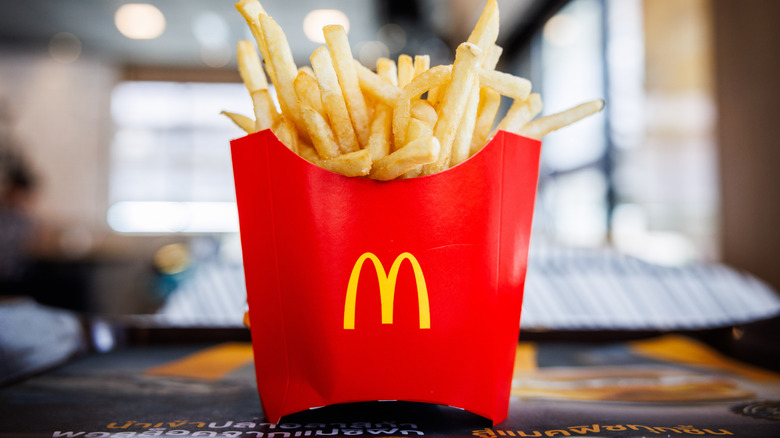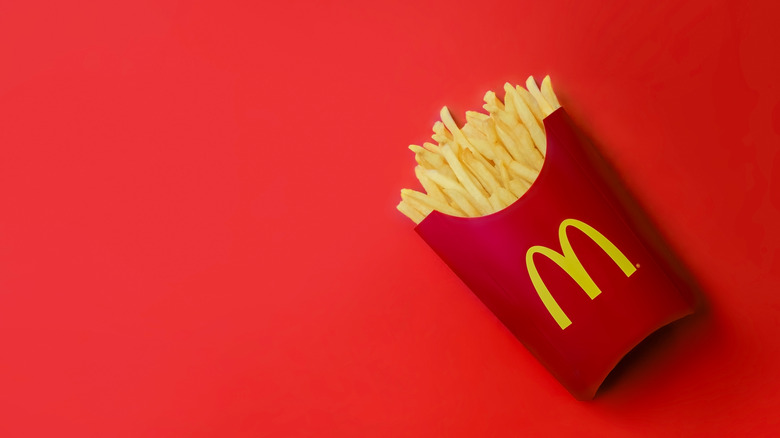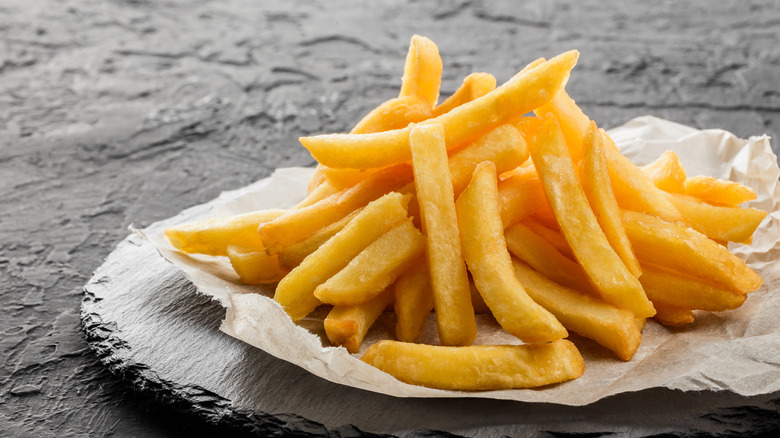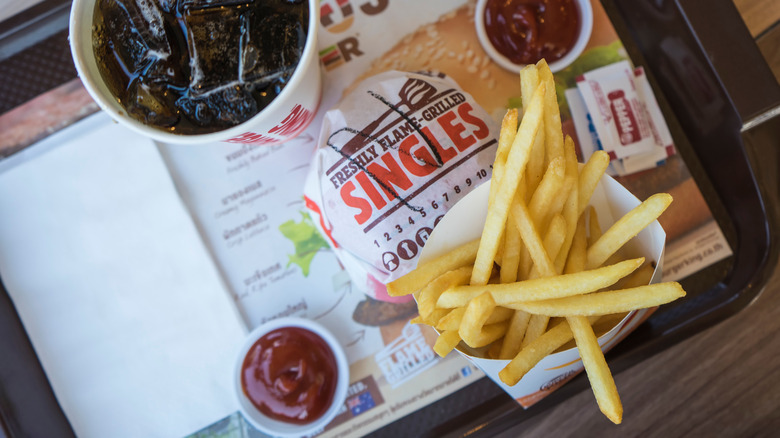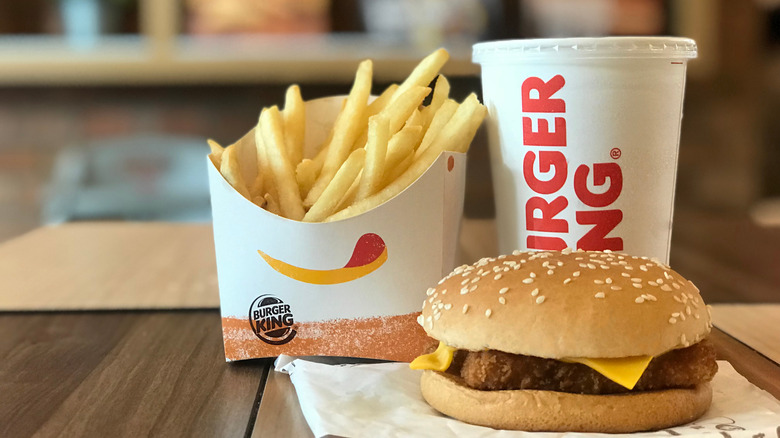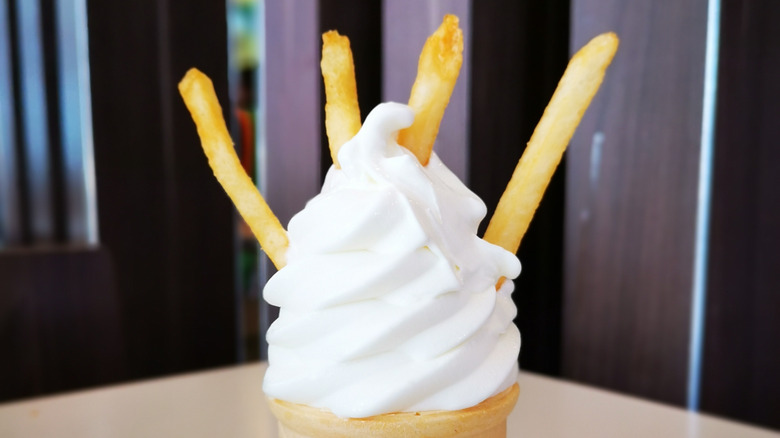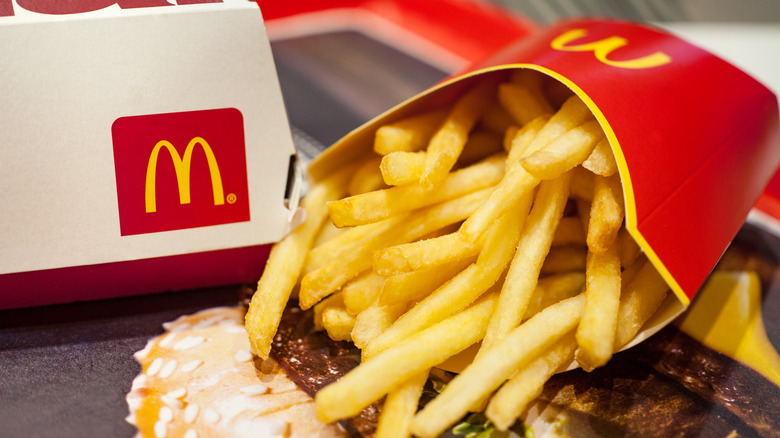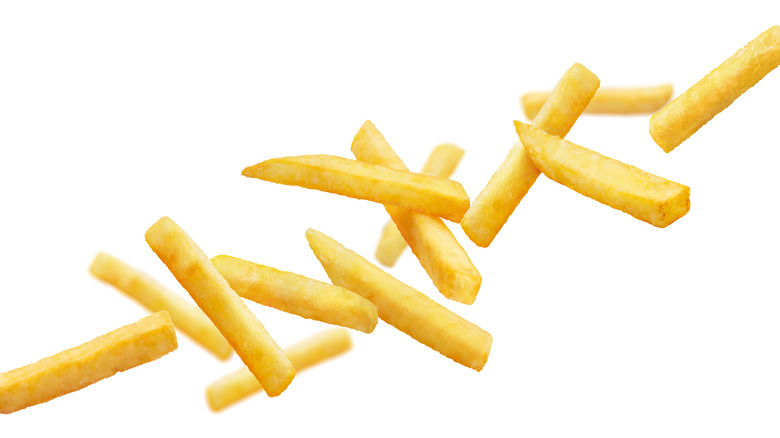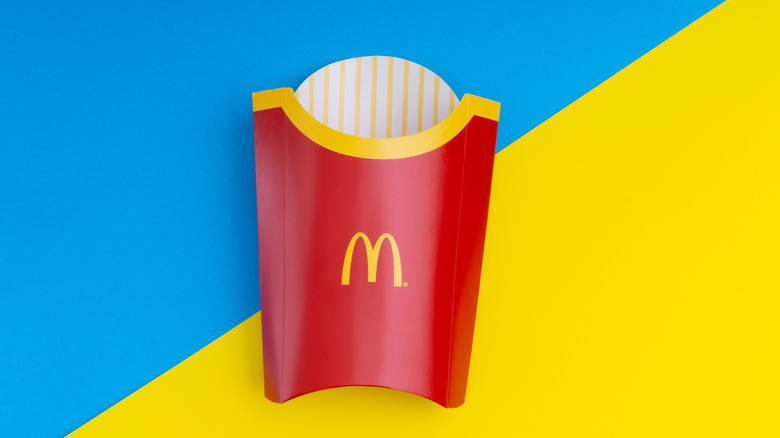McDonalds Vs Burger King Fries: Which Is Really Better?
When it comes to fast food, it's hard to think of a rivalry more prominent than McDonald's versus Burger King. The two chains, which both launched in the 1950s (1954 for BK and 1955 for Micky Ds) have always been at odds. From their advertising flame wars to households divided by preferences for the Whopper versus the Big Mac, it's a competition that dates back decades. And while each menu category begs for comparison, no comparison is more intense than between their respective French fries.
For decades, McDonald's has worn the French fry crown. Our own survey found that more than 40% of people like their fries more than other fast food fries. But is that French fry crown deserved? Even if it was in the past, does the chain remain worthy of it?
And the most important question: Is the Burger King ready to dethrone Ronald?
We decided we needed to know once and for all whether Burger King or McDonald's has the better French fries. And what we discovered might surprise you.
McDonald's fries are historically better and are the most popular item on the menu
The Ringer ranks McDonald's fries the third best fast food item in America and we think it's a well earned third place, thanks in part to their beefy flavor and coatings of salt and sugar. Even Malcolm Gladwell, author and host of the podcast Revisionist History, said in an interview, "When I was a teenager and I went to McDonald's all the time, I went there because of the fries."
Gladwell notes that even Ray Kroc, who opened the original McDonald's franchise in the '50s after visiting the original McDonald's' fast food restaurant in San Bernardino, cared more about the brothers' fries than the burger.
"The fries were what blew him away," said Gladwell. "He was attracted to this — to what the McDonald brothers were doing because they had figured out the secret of the fry."
They're so good, people try to recreate them at home
You know a fast food item is good when people want to make it at home — after all, ordering it at a restaurant is usually perceived as the major benefit of fast food! We did just that with our copycat McDonald's french fries recipe, relying on frozen fries (just like Mickey D's does) which, unlike the originals — get this — are brined in a bath of soy milk, baking powder, and beef stock.
Yeah, we get it — that probably sounds really strange. But the mixture actually emulates the flavor of the beef fat traditionally used to make the chain's famous fries. And our recipe developer's taste testers couldn't tell the difference. Now that's the sign of a good copycat recipe. Moreover, they loved them, which just serves to boost McDonald's reputation for exceptional French fries even higher.
Burger King's fries have a terrible reputation
As opposed to the golden reputation of the fries at the Golden Arches, Burger King's fries have never enjoyed such fame. BK's have the reputation of being boring, soggy, and not nearly as crispy or as flavorful as the fries from their biggest rival.
Everyone from Twitter users to online reviewers are regularly slinging insults at these humble fries, with one reviewer on Tiger Droppings claiming they "taste like rubber" and another on Quora insinuating that Burger King is fine with serving lower quality fries.
"I don't think Burger King cares much about their image these days. No one over there is driving the ship, they're content to flounder in the water," writes reviewer Martin Bayer. "They approach fry quality with the same level of passion."
Fast food legend Keith Habersberger reacted to the fries with a similar ho-hum mindset when he reviewed the chain for his Keith Eats Everything At Burger King episode.
Burger King has a history of tinkering with its fry recipe
Unlike McDonald's, which has remained relatively true to its fry recipe (with the one exception in 1992 — but we'll get to that in a second), Burger King has been tinkering with its fry recipe for years. In 1998, it rolled out a fry coated in a potato-based batter that was meant to keep them hotter longer, and in 2011, it launched a thicker fry boasting less sodium and a new coating designed to, again, help them stay hot, but also to make them crispier. In 2013, the chain changed tacks once more, launching a purportedly healthier fry with fewer calories and less fat in an effort bring back "lapsed" diners.
But despite all of these changes and new products, we can't help but feel that if BK keeps messing with its fries, it's because something isn't quite right with them. And it doesn't seem like any of these new products has actually righted the preexisting problems.
Burger King's fries are gimmicky
The constant "new and improved" approaches to its French fries aren't the only ways that Burger King has gotten pretty gimmicky with its most popular side. Over the years, the chain has pulled stunts like releasing a fry-only burger (in New Zealand markets only), crafting fry sundaes in Singapore. We can only assume that these have all been attempts to garner popularity. But if you have to pull these kinds of stunts to get people to talk about your fries, then ... maybe they're not so great?
Burger King has pulled some charitable fry stunts worth mentioning, though, including giving away free potatoes in France to support farmers during the pandemic. Recipients would have to make the fries themselves, but the company's heart was in the right place.
Still, at the end of the day, gimmicks do not make up for ho-hum fries, and all of the bells and whistles don't distract consumers from the reality: BK's fries just aren't that great.
But McDonald's fries aren't as good as they used to be
While BK's fries have historically been worse than McDonald's, it turns out that McDonald's fries are not nearly as good as they once were ... and that's not just nostalgia talking. Under pressure from healthy living advocates, McDonald's changed its French fry recipe in 1992, replacing the beef tallow traditionally used to fry the fries with vegetable oil and "beef flavoring," in an attempt to reduce their cholesterol content. (Though we now know the swap isn't any healthier and could actually be worse for you.)
Gladwell bemoaned this change in his interview with The Ringer, noting that while Ray Kroc originally claimed he was never going to change the French fry recipe that the McDonald brothers had perfected at their San Bernardino restaurant in the 1950s, in reality, he did the exact opposite.
"He says in his autobiography, the fries would be sacrosanct," Gladwell said. "And then what happened? He screwed it up. Forty years later, he changed the recipe."
McDonald's fries aren't vegan, but BK's are
Through the years, while Burger King has modified its French fry recipe many times, one thing has remained the same: Unlike McDonald's, the French fries at Burger King are and have always been vegan. In fact, its French fries now join a growing list of vegan offerings at Burger King, including an Impossible Whopper made with plant-based Impossible Meat.
Since 1992, McDonald's fries have indeed been vegetarian: The beef flavoring used in them to emulate the flavor of the long abandoned beef tallow is actually not made of beef at all, but rather milk derivatives. Yet the fact remains that these fries are not vegan and Burger King's are. This may not be a selling point for all diners, but some will certainly see it as a major plus for team BK and choose its plant-based fries in the future.
McDonald's fries have a chemical aftertaste
Today, McDonald's fries aren't just fried in vegetable oil; they also contain a whopping 20 ingredients, including some fairly unpronounceable ones like sodium acid pyrophosphate and dimethylpolysiloxane. And while no one is claiming that McDonald's fries were "natural" when they were fried in beef tallow, it turns out that all these additives might make a difference in terms of flavor.
Though probably related to old fryer oil rather than these additives, when Insider compared McDonald's French fries with those from several other top fast food chains, reviewers found that those from the Golden arches had an "unappealing 'chemical' aftertaste." That's pretty disappointing, especially for French fries that have enjoyed such a great reputation for so long.
But does that mean McDonald's fries are fading? While McDonald's fries have been the stalwart favorite of the fast food industry for decades, is it time for Ronald McDonald to step down from the podium and pass his French fry crown to the new "king" in town?
Now that you know the details, the question of which company's fries are really better — McDonalds vs Burger King — is up to you.
